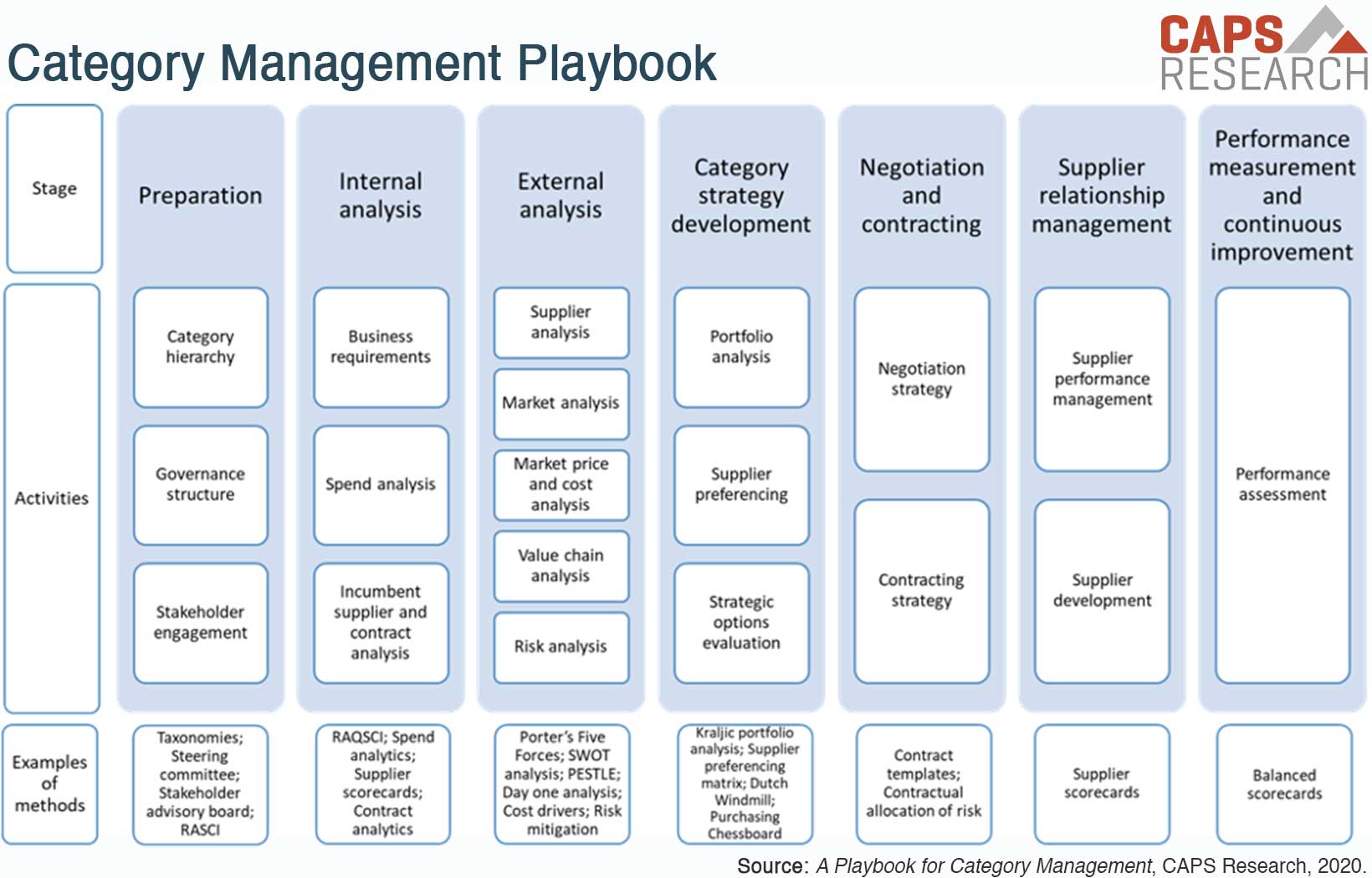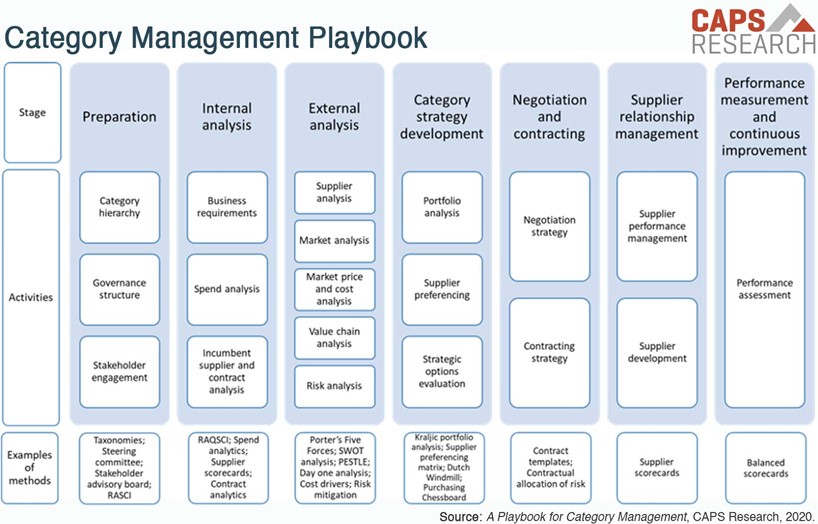A category management playbook can serve as a guide to supply management professionals who are either beginning their journey or who want to improve how they currently execute category management.
A CAPS research team has identified seven stages a category management playbook should include, with input from supply management executives:


- Preparation: Organizations prepare for category management activity by defining the category hierarchy, establishing the governance structure for category management, and engaging with stakeholders.
- Internal Analysis: This stage focuses on the internal analyses needed to understand business requirements that translate into category requirements, past spend on goods and services, and the current supply base and its capabilities (including incumbent suppliers and established agreements with them).
- External Analysis: This analysis is conducted to understand the supply market, other suppliers beyond incumbent suppliers, cost and price structure, value chain, and risk. Organizations might search for the following as part of the external analysis:
- Key suppliers in the market
- Available capacity in the market
- Technology trends
- Environmental issues
- Regulatory issues
- Cost/price data and trends
- Category Strategy Development: This stage brings the learnings from the first three stages to begin to define the category strategies and suppliers that are aligned with business requirements. It lies at the heart of an organization’s category management approach. It classifies different categories and describes the strategies suitable for each class of category.
- Negotiation and Contracting: The fifth stage represents the start of the execution phase of category management, including contracting, negotiation and competitive bidding with suppliers.
- Supplier Relationship Management (SRM): SRM is an ongoing process that guarantees that all interactions with suppliers are strategically planned for and managed to ensure maximum value. Within category management, SRM involves continuous monitoring of supplier performance to ensure compliance with the buyer’s requirements and contract, and identification of opportunities for improvement and development.
- Category Performance Measurement: The final stage represents the necessity for a regular re-evaluation of category strategies to ensure they are aligned with changing market conditions. Supplier performance management involves:
- Ensuring supplier compliance with contractual terms and agreements
- Regularly assessing supplier performance on key performance indicators
- Sharing performance information with suppliers
- Identifying opportunities for improvement
Robust category management is expected to become even more important in organizations in the future. As we increasingly adopt technological solutions that automate routine spend, supply management professionals will be expected to focus more on strategic tasks that create value for the organization. The seven-stage category management playbook is a tool that can help accelerate that shift.
From the CAPS Research White Paper, A Playbook for Category Management, CAPS Research, November 2020.
Members get priority access
Explore the entire CAPS Library
Reports released within the last seven years are reserved for members, but anyone may create a free account in the CAPS Library and access more than 30 years of KPIs, best practices, and thought leadership. Employees of CAPS member companies can access the full report in the CAPS Library now.
Non-members can receive the report of each survey they submit.
Members can access all reports, but are encouraged to submit surveys to
increase the comparative breakouts only they receive.